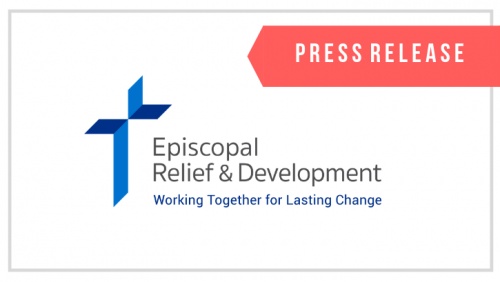Syria Crisis Response Updates
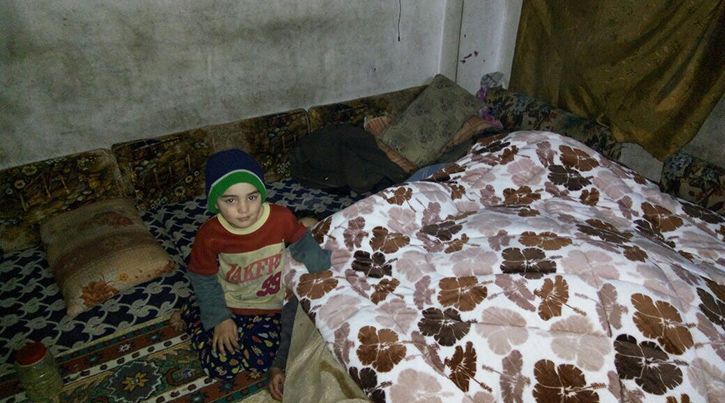
Episcopal Relief & Development is engaging the Syrian crisis through support to agencies in Syria, to the Diocese of Jerusalem’s Holy Land Institute for the Deaf and in support of large numbers of people traveling out of crisis areas into Europe. The agency is in contact with Anglican Communion partners through The Episcopal Church’s Convocation of Episcopal Churches in Europe and The Church of England’s Diocese in Europe, as well as interfaith partners such as Islamic Relief and the Fellowship of Middle East Evangelical Churches.
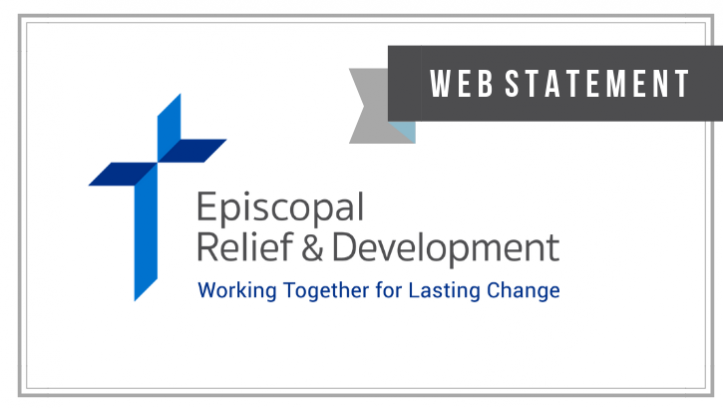
Supporting Displaced Individuals and Families in Syria
Web Statement
February 18, 2020
Episcopal Relief & Development is continuing to support the Fellowship of Middle East Evangelical Churches (FMEEC) as they provide critical cold-weather supplies to 1,200 vulnerable families in Syria this winter. Since 2013, the organization has supported FMEEC in caring for people who have been displaced by the ongoing violence and resulting economic instability.
According to the UN, the Syrian conflict remains the world’s largest displacement crisis. Despite increased stability in some areas of the country, most Syrians continue to experience as much hardship as they have at any point in the nine-year conflict. This is primarily due to the country’s economic conditions. The harsh winter months, with heavy snowfall and temperatures below zero degrees Celsius in some areas, present additional challenges to already vulnerable communities.
With the support of Episcopal Relief & Development, FMEEC is responding to these challenges by providing critically needed blankets, electric heaters, heating fuel and winter clothing to 6,000 individuals in the western part of the country. As-Sweida, Damascus, Homs, Aleppo and Lattakia have been particularly impacted by the conflict and insecurity, and have high levels of need due to extremely cold conditions in the winter months.
“The ongoing Syrian crisis has stretched the limited resources of many refugees, making it difficult to purchase essential winter items,” said Nagulan Nessiah, Senior Program Officer, Disaster Response and Risk Reduction for Episcopal Relief & Development. “Our partners at FMEEC have extensive experience and an established network in the region that enables them to respond efficiently where help is most needed.”
FMEEC is an association of the Protestant Evangelical churches of the Middle East, whose members include the Episcopal Diocese of Jerusalem. FMEEC’s volunteer network has assisted communities in Syria since the conflict began in 2011 by providing food, clothing, rent assistance, heaters, fuel, hygiene kits and other relief supplies.
Please call our offices at 855-312-4325 if you wish to make a donation to support those who have been displaced by the ongoing violence and resulting economic instability in Syria.
For over 75 years, Episcopal Relief & Development has been working together with supporters and partners for lasting change around the world. Each year the organization facilitates healthier, more fulfilling lives for more than 3 million people struggling with hunger, poverty, disaster and disease. Inspired by Jesus’ words in Matthew 25, Episcopal Relief & Development leverages the expertise and resources of Anglican and other partners to deliver measurable and sustainable change in three signature program areas: Women, Children and Climate.
Episcopal Relief & Development Continues to Respond to Needs of Refugees in Syria
Episcopal Relief & Development is supporting the Fellowship of Middle East Evangelical Churches (FMEEC) as it provides supplies to cover winter needs of people displaced by the ongoing conflict in Syria.
During the harsh winter months, the partnership will meet immediate needs for 500 families in Aleppo and Homs Governorate who have been newly displaced or seriously affected by the effects of the conflict. The over seven-year conflict in Syria has had a significant impact on the economy and resulted in high basic commodity prices, shortages in basic necessities, low wages and high rates of unemployment. FMEEC will provide fuel, blankets and clothing to help families struggling this winter.
“While the security situation has improved in many parts of Syria, the scale, severity, and complexity of needs across the country are staggering,” said Nagulan Nesiah, Senior Program Officer for Disaster Response and Risk Reduction with Episcopal Relief & Development. “For many displaced and other vulnerable families, winter brings with it heavy burdens and responsibilities that are too much for them to bear on their own.”
Since 2013, Episcopal Relief & Development has supported FMEEC in caring for people displaced by the crisis. It is an association of the Evangelical (Protestant) churches of the Middle East, whose members include the Episcopal Diocese of Egypt, Iran, Sudan and Jerusalem. FMEEC’s volunteer network of church youth and local coordinators serve in different logistical roles in target areas and have assisted communities since 2011.
For over 75 years, Episcopal Relief & Development has been working together with supporters and partners for lasting change around the world. Each year the organization facilitates healthier, more fulfilling lives for more than 3 million people struggling with hunger, poverty, disaster and disease. Inspired by Jesus’ words in Matthew 25, Episcopal Relief & Development leverages the expertise and resources of Anglican and other partners to deliver measurable and sustainable change in three signature program areas: Women, Children and Climate.
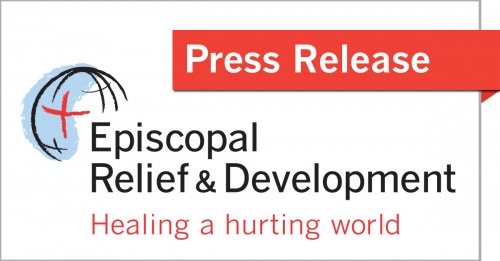
Episcopal Relief & Development Responds to the Refugee Crisis in Syria
Episcopal Relief & Development is working with the Fellowship of Middle East Evangelical Churches (FMEEC) to respond to the needs of people displaced by the ongoing unrest in Syria.
This FMEEC partnership will provide blankets, clothing, stoves and fuel during the harsh winter months to 2,850 people newly displaced who are living in the Aleppo, Homs and Hama governorates. Aleppo and Homs have been the center of the conflict. Many homes and buildings have been destroyed and people don’t have access to basic services.
With the crisis in its seventh year, Syrians struggle with basic needs, including food, shelter and medicine. Approximately six million people have been displaced and uprooted from their homes in Syria with over five million seeking refuge outside of the country.
“We are thankful for our partnership with FMEEC, an organization that is particularly knowledgeable and well connected in Syria, during this humanitarian crisis,” said Rob Radtke, President of Episcopal Relief & Development. “After recently visiting the Holy Land Institute for the Deaf outreach centers in Za’atari and Azraq in Jordan and witnessing the impact of displacement, I am grateful to our partners for providing a compassionate and critical response for those uprooted from their homes and who face an uncertain future.”
Episcopal Relief & Development continues to respond to the current crisis by partnering with organizations that provide vital services for people displaced in Syria and those seeking refuge in other countries.
Since 2015, Episcopal Relief & Development has supported FMEEC in caring for people displaced by the crisis. FMEEC is an association of the Evangelical (Protestant) churches of the Middle East, whose members include the Episcopal Diocese of Egypt, Iran, Sudan and Jerusalem. FMEEC’s volunteer network of church youth and local coordinators serve in different logistical roles in target areas and have assisted communities since 2011.
“We’re seeing Syrians who fled their homes or were living in refugee camps begin to return to their original communities,” said Nagulan Nesiah, Senior Programme Officer for Disaster Response and Risk Reduction with Episcopal Relief & Development. “They face poverty, malnutrition and a loss of income. Children, women, the elderly and the disabled are particularly vulnerable. Many rely on relief aid for the basic necessities. The crisis is still ongoing.”
For over 75 years, Episcopal Relief & Development has served as a compassionate response to human suffering in the world. The agency works with more than 3 million people in nearly 40 countries worldwide to overcome poverty, hunger and disease through multi-sector programs, using the Sustainable Development Goals (SDGs) as a framework. An independent 501(c)(3) organization, it works closely with Anglican Communion and ecumenical partners to help communities create long-term development strategies and rebuild after disasters.
Renewed Support for Refugee Center in Rome
Episcopal Relief & Development is serving tens of thousands of displaced people in Rome through the ongoing relief efforts of its partner, the Joel Nafuma Refugee Center (JNRC). JNRC addresses the needs of people fleeing conflict and persecution by providing a safe and secure daytime shelter to support their physical and psychological well-being. Episcopal Relief & Development’s support enables the center to provide food, essential non-food items and access to clean water and facilities for personal hygiene.
“As Italy struggles to deal with the influx of asylum seekers, JNRC’s humanitarian services are required more than ever. We are now seeing unprecedented numbers as the refugee population in Europe reaches crisis level,” noted Annika Milisic-Stanley, an organizer for the center. The center reported that the increased demand for services is due to a rise in the number of people fleeing Libya, increased deportations from other countries, and the closure of Le Jongle (“The Jungle”) camp in Calais, France.
The Joel Nafuma Refugee Center provides a unique resource for people seeking safety in Rome, as the only center in the region supplying displaced people with food, shelter and social services during the day. The center offers its guests hot breakfast and food, blankets and toiletries, along with legal advice to assist them in finding employment and establishing new lives in Europe. People at the center can take computer and language classes, learning skills to help them find jobs and fit into new communities. It also offers a multi-faith prayer space, where guests can reflect, meditate and pray. Since many guests are alone and vulnerable, counseling services are available to help them cope as they transition to independence.
“Through the Nafuma Center’s longstanding presence in the region, they have significant experience and established relationships that allow our aid to be most effectively used,” said Nagulan Nesiah, Senior Program Officer for Disaster Response and Risk Reduction at Episcopal Relief & Development. “As more people seek safety and resources in and around Rome, their services are more vital than ever.”
Episcopal Relief & Development’s assistance will provide kitchen items and supplies to enable JNRC to serve 200-250 men and women per day with meals through the center’s breakfast program. The agency will also support the bathroom and sanitation facilities at the center, including free hot water for guests, who often are homeless or staying in overcrowded government dormitories. Additional relief will include the provision of clothes, shoes, blankets and essential toiletries.
Episcopal Relief & Development’s partnership with the Joel Nafuma Refugee Center is part of an ongoing effort to provide care and compassionate support for those seeking refuge in Europe. Over the past year, the organization has worked with the Convocation of Episcopal Churches in Europe to support centers for displaced people such as the Asylum Seeker Center in Munich and the center in the Le Jongle camp in Calais, France. The agency has also supported congregations of the Convocation, such as All Saints’ Episcopal Church in Waterloo, Belgium, who continue to provide meals and other vital services for those seeking safety from conflict in Syria and elsewhere.
Please continue to pray for those displaced by instability and conflict in their home nations, and for the men and women providing refuge at the Joel Nafuma Refugee Center and other centers around the world.
In order to help, please donate to the International Disaster Response Fund to enable Episcopal Relief & Development to respond where most needed.
For over 75 years, Episcopal Relief & Development has served as a compassionate response to human suffering in the world. The agency works with more than 3 million people in nearly 40 countries worldwide to overcome poverty, hunger and disease through multi-sector programs, using the Sustainable Development Goals (SDGs) as a framework. An independent 501(c)(3) organization, it works closely with Anglican Communion and ecumenical partners to help communities create long-term development strategies and rebuild after disasters.
Episcopal Relief & Development’s partner in Jordan, Holy Land Institute for the Deaf (HLID) is extending its Za’atari Camp activities to a second camp, Azraq.
“It is especially heartening to see how the Holy Land Institute for the Deaf and the Diocese of Jerusalem are not only remaining steadfast in their support of families and children in Za’atari camp but replicating this successful program in Azraq camp as well,” said Nagulan Nesiah, Episcopal Relief & Development’s senior program officer for disaster response and risk reduction. “After five years of crisis in Syria with no sign of easing, our local partners in the region who were active before the conflict are still helping to the best of their ability, and we continue to support them.”
Episcopal Relief & Development has renewed support of Episcopal Church of the Ascension in Munich and its Asylum Center ministry, which has been working with McGraw Camp since late 2015. Needs have grown due to the closure of other camps in the city.
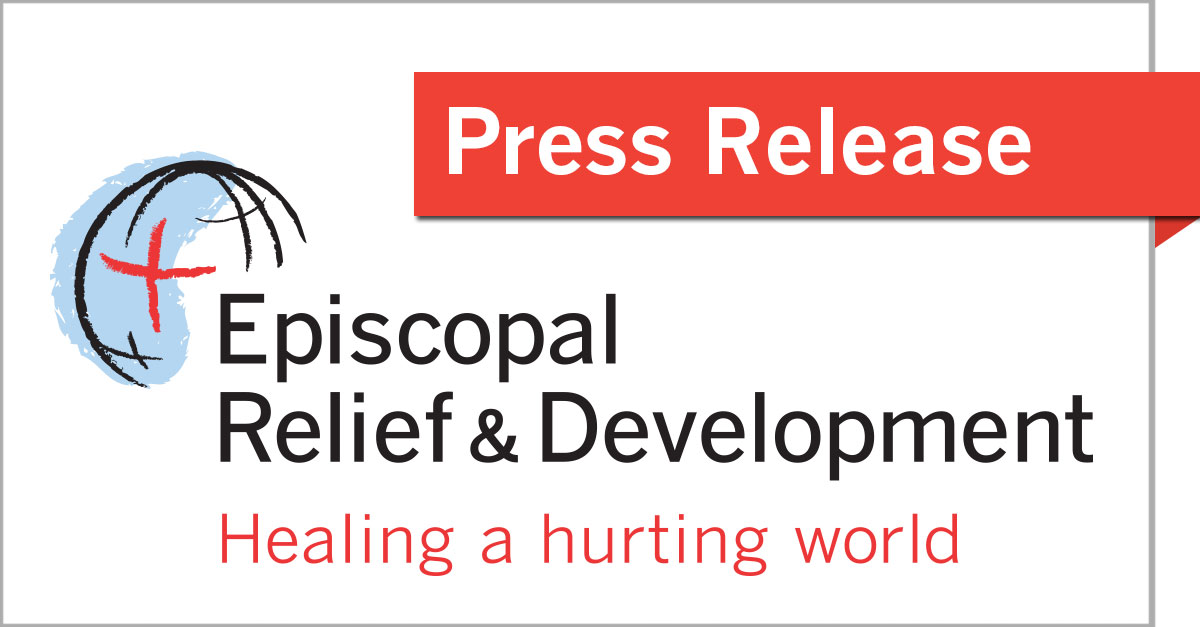
Episcopal Relief & Development is supporting the outreach efforts of All Saints’ Episcopal Church in Waterloo, Belgium, to provide meals and other needed services for people seeking safety from violence in Syria and elsewhere in the region. Although the total number of people entering Europe has decreased since late 2015 (UNHCR estimates that 1 million people entered in 2015, half of them from Syria; to date in 2016 more than 240,000 people have entered by sea alone), Belgium is still a major transit point and local organizations are uniting compassionate community members to assist those recently arrived or awaiting legal status. The congregation of All Saints’, a member of the Convocation of Episcopal Churches in Europe, welcomes people with food and fellowship as they navigate their next steps.
It has been five years since the start of the Syrian conflict, which has displaced over 11.4 million people – half the country’s pre-conflict population. Responding to the needs of children with disabilities who have fled with their families to neighboring Jordan, the Holy Land Institute for the Deaf (HLID) has been working in the Za’atari Refugee Camp since 2012. Learn how, both in Za’atari Camp and on its main campus in Salt, HLID empowers people to engage with their reality, recognize their gifts and contribute to the lives of those around them.
Read the full post on our blog
Matthew Davies of Episcopal News Service posted an article about the situation in “The Jungle”, the well-known camp in Calais, and the work of the Cathedral of the Holy Trinity in Paris (seat of the Convocation of Episcopal Churches in Europe) to meet needs there. Episcopal Relief & Development is in contact with Convocation leadership and is supporting a number of church-based ministries.
Read the full article on Episcopal News Service

Episcopal Relief & Development is working with local organizations as well as Anglican Communion and ecumenical agencies to provide assistance in Syria and in Europe to people fleeing ongoing violence.
Within Syria, the organization continues to aid the work of the Fellowship of Middle East Evangelical Churches (FMEEC) to provide rent subsidies and food for those displaced from their homes but remaining within the country’s borders. In Europe, support of Islamic Relief’s efforts assists those transiting through Lesvos, Greece, on their way to the mainland, while partnerships with the Church of England’s Diocese in Europe and The Episcopal Church’s Convocation of Episcopal Churches in Europe help host and resettle people in their new home countries. Churches are actively responding at a local level in Rome, Munich, Paris and Brussels, among other cities.
“The way in which our 21 congregations have responded makes me very proud,” said The Rt. Rev. Pierre Whalon, Bishop of the Convocation of Episcopal Churches in Europe. “While Episcopal churches in Europe have had significant refugee ministries since the Second World War, our people have unanimously increased their present work, for instance at the Joel Nafuma Center at St. Paul’s Within the Walls, Rome. New efforts are also underway as the current crisis creates new needs and therefore new opportunities for ministry, like at the Cathedral in Paris and in the terrible camps at Calais. Over the years, we have become trusted partners with governments and relief agencies in the six countries where we have churches. And ever since the beginning of this new inflow of people, Episcopal Relief & Development and Episcopal Migration Ministries have worked closely with us.”
At the Joel Nafuma Refugee Center (JNRC), housed at St. Paul’s Within the Walls Episcopal Church in Rome, Volunteer Coordinator Daniela Morales reports that Episcopal Relief & Development support has enabled the center to improve the nutritional value of their daily breakfast. With affirmation from two World Food Program nutritionists and a survey among the center’s guests, hardboiled eggs and fruit or rice and beans now supplement the usual tea and croissants several times per week. Noting that JNRC guests often face challenges in finding employment, Morales says that the center aims to employ its guests whenever possible – for example, shopping for and preparing breakfasts – and that it is currently strengthening its vocational training and job placement program to aid success in this area. The JNRC also aims to extend its hours past 2:00 p.m. so that guests have a safe place to stay until their lodging opens at 8:00 p.m., and to expand programming to offer language instruction, psychotherapy, art and music therapy, sports and other recreational activities.
The Asylum Seeker Center in Munich, founded 30 years ago by the Episcopal Church of the Ascension with Roman Catholic and Lutheran partners, is providing services to displaced people at McGraw Camp, a converted former army barracks within walking distance of Ascension. The Rev. Steven Smith, Ascension’s rector, reports that the camp houses 300 people at a time, with three or four people to a room in trailer homes, while they wait up to eight weeks for paperwork approvals and transition to permanent housing. Another organization, the evangelical Innere Mission, has supported meals and cultural and language assistance at the camp. With Episcopal Relief & Development support, Ascension aims to expand its current hospitality ministry by adding a second day of fellowship activities, launching a ‘clothing closet’ and building a bicycle shed with subsidized rentals.
The American Cathedral of the Holy Trinity in Paris has been a major supporter of services in Le Jongle (‘The Jungle’), a camp of up to 6,000 displaced people outside the northern French city of Calais. The Cathedral is supporting a mobile medical unit to deliver urgently needed health care in the camp, and during the Christmas season, Convocation Bishop Whalon and Cathedral Dean Lucinda Laird brought 3,000 shoeboxes of toys, school supplies, winter clothes and personal care items from the Cathedral’s longstanding ‘Love in a Box’ program. In Paris, the Association of Welfare for Easter Minorities (AEMO) is working to find host families for displaced, persecuted Iraqis, and assist them with necessary paperwork. Volunteers from the Paris Cathedral are providing language services to help the newcomers to better navigate the challenges of life in a new country.
Elsewhere in Europe, church members from All Saints’ Episcopal Church in Waterloo, just south of Brussels, are assisting Belgian government authorities with housekeeping, language assistance and other services in a tent city that houses travelers arriving in the capital to complete their fast-track registration process. Notably, All Saints’ runs a ‘fruit ministry’ that provides hundreds of pieces of fresh fruit each day. Churches in Wiesbaden and Frankfurt, Germany, are also forming linkages with welcome centers in their areas to offer hospitality, services and cultural and language mediation.
“I am extremely impressed by the instinctive, organic initiatives developing throughout Europe that engage locals in joyfully welcoming travelers into their home cultures,” said Nagulan Nesiah, Episcopal Relief & Development’s Senior Program Officer for Disaster Response and Risk Reduction. “One of the biggest stressors for people is the sheer feeling of displacement and not belonging, and the hospitality and cultural ministries of Episcopalians in Europe – whether it’s helping people learn the language or just playing games or sharing a meal together – provides a foothold that will give them the energy and hope to press on with what can be a very long and exhausting process.”
Please continue to pray for all those fleeing violence and unrest. To support Episcopal Relief & Development’s response, please donate to the Syria Crisis Response Fund.
| Matt Davies of Episcopal News Service created a series of videos exploring the ministries of churches in Europe responding to the needs of displaced people. |
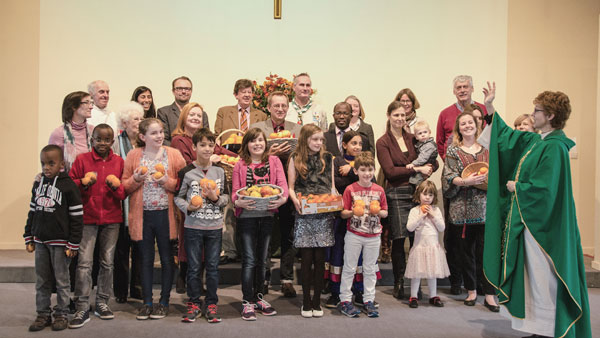 |
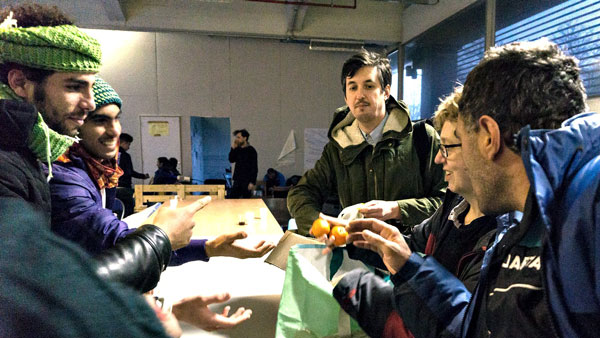 |
| Blessing of the fruit at All Saints’ on Harvest Day | All Saints’ Waterloo fruit distribution |
For over 75 years, Episcopal Relief & Development has served as a compassionate response to human suffering in the world. The agency works with more than 3 million people in nearly 40 countries worldwide to overcome poverty, hunger and disease through multi-sector programs, using the Sustainable Development Goals (SDGs) as a framework. An independent 501(c)(3) organization, it works closely with Anglican Communion and ecumenical partners to help communities create long-term development strategies and rebuild after disasters.
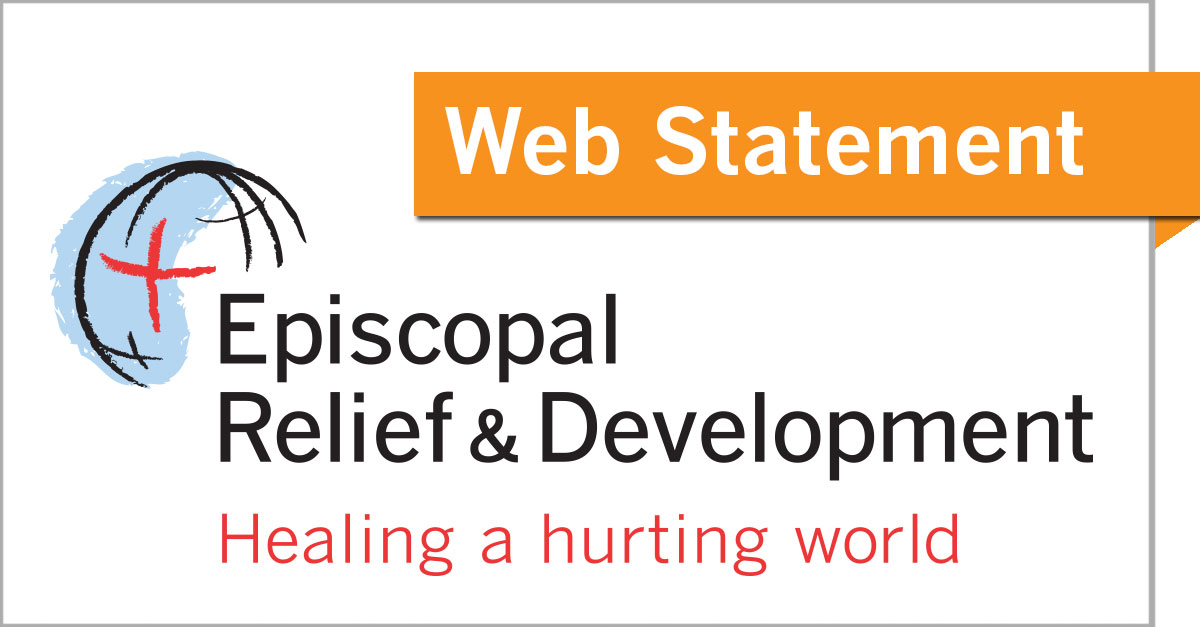
Episcopal Relief & Development is supporting Islamic Relief’s efforts on the island of Lesvos, Greece, to provide critical emergency supplies as well as language and cultural mediation services to people traveling en route to mainland Europe. The majority of people currently arriving on Lesvos are fleeing the Syrian conflict, adding to the number of travelers displaced by unrest in Iraq, Afghanistan and other areas. Aided by Episcopal Relief & Development, Islamic Relief is supplying food, water, tents and cash assistance to those crossing the island, and helping people access and understand information about how to register with authorities and secure further travel.
“Refugees are still landing on the island, but instead of facing a grueling walk to register, many can now board buses run by local volunteers and international NGOs,” Islamic Relief’s website reports. “In the main port, where refugees had been gathering, the government has started registering and taking people off the island. […] Large ferries carried thousands of people a day, working to clear the backlog of refugees trapped in limbo, waiting to continue their journey to safety.”
The usual population of Lesvos is approximately 80,000 people, and the influx of up to 2,000 displaced people each day has put a strain on local infrastructure. Islamic Relief is working with local and international NGOs such as International Rescue Committee to organize necessary systems and provide relief and support for up to 1,000 exhausted travelers each day.
Also in Greece, the Church of England’s Diocese in Europe is working through Us (the relief and development agency of the Church of England, formerly USPG) and the Church’s Greek parishes in Samos, Leros and Athens to support reception centers and a hostel for displaced people with medical needs, in partnership with the Greek Orthodox Church.
Elsewhere in Europe, the Convocation of Episcopal Churches in Europe is responding through local ministries in Austria, Belgium, France, Germany, Italy and Switzerland. The Convocation has undertaken a mapping initiative to gather information on how parishes are responding in their own areas and what resources may be needed or available for further partnership. Outreach ministries in tent camps and gathering places are providing hospitality and connecting travelers with information and services.
“Our Anglican Communion and interfaith peers are responding in many compassionate ways to the needs of those seeking safety in Europe,” said Nagulan Nesiah, Episcopal Relief & Development’s Senior Program Officer for Disaster Response and Risk Reduction. “We are participating in coordination calls to offer our support and expertise and anticipate that our involvement will increase over the coming months.”
Please continue to pray for all those fleeing violence and unrest. Contributions to the Syria Crisis Response Fund will help support relief efforts.

Episcopal Relief & Development is engaging the Syrian crisis through support to agencies in Syria, to the Diocese of Jerusalem’s Holy Land Institute for the Deaf and in support of large numbers of people traveling out of crisis areas into Europe. The agency is in contact with Anglican Communion partners through The Episcopal Church’s Convocation of Episcopal Churches in Europe and The Church of England’s Diocese in Europe, as well as interfaith partners such as Islamic Relief.
“Our relationships with Anglican Communion and ecumenical organizations enable us to contribute efficiently and effectively to the relief of those fleeing the Syrian conflict,” said Abagail Nelson, Episcopal Relief & Development’s Senior Vice President for Programs. “These agencies are leveraging our support to meet critical needs for basic supplies, as well as language and cultural mediation to lower the anxiety of displacement and help people access available services.”
In Italy, St. Paul’s Within the Walls Episcopal Church in Rome operates the Joel Nafuma Refugee Center as its primary outreach ministry, providing a safe space for 200-250 individuals per day to access legal, vocational, medical and language services. Episcopal Relief & Development support will enable the Center to expand its ministry to serve the increased number of displaced people seeking safety and assistance.
The Church of England’s Diocese in Europe plans to distribute emergency funds to churches in Greece, Italy, France and Hungary that are responding to the needs of displaced people for food, clothing, shelter materials and medical supplies. The Diocese is reportedly working with Orthodox churches in these areas as well, which expands the capacity to ensure needs are met.
Islamic Relief is active on the island of Lesvos, Greece, where Syrians fleeing the conflict arrive at the northern town of Molyvos, closest to Turkey, and travel to the southeastern town of Mitilini in order to take the ferry to the mainland. Arabic-speaking Islamic Relief staff, working with other organizations and local volunteers, are offering food and guidance to those arriving, including information about transportation options such as buses to save the 40-mile journey on foot.
Please continue to pray for all those fleeing violence and unrest. Contributions to the Syria Crisis Response Fund will help support relief efforts.

Episcopal Relief & Development urges prayers for all those displaced by the conflict in Syria, and particularly for those attempting the arduous journey to reach safety in Europe. The agency is currently exploring potential collaborations with organizations active in transit countries, such as Islamic Relief in Greece. Episcopal Relief & Development has also reached out to the Anglican Alliance and ACT Alliance regarding possible ecumenical partnerships in the region.
According to the UN Office of the High Commissioner on Refugees (UNHCR), more than 381,000 refugees and migrants have crossed the Mediterranean into Europe in 2015, half of this number from Syria. Between April 2011 and July 2015, 348,540 Syrians applied for asylum in Europe. The large influx of displaced Syrians is challenging European host countries, some of which are also sheltering people displaced by conflict and instability in Iraq, Afghanistan, Eritrea and other countries.
As the crisis in Syria enters its fifth year, an estimated 4.1 million people have fled the country, many taking refuge in Lebanon (1.1 million), Jordan (630,000) and Turkey (1.9 million). An additional 7.6 million Syrians are displaced within the country’s borders. Within Syria, Episcopal Relief & Development continues to support the Fellowship of Middle East Evangelical Churches in providing food and shelter for people displaced by the conflict.
Archbishop of Canterbury Justin Welby, head of the Anglican Communion, said in a statement on September 3: “There are no easy answers and my prayers are with those who find themselves fleeing persecution, as well as those who are struggling under immense pressure to develop an effective and equitable response. Now, perhaps more than ever in post-war Europe, we need to commit to joint action across Europe, acknowledging our common responsibility and our common humanity.”
In the United States, Episcopal Migration Ministries has been monitoring the situation and suggests three things Episcopalians can do to take action:
-
-
- Volunteer with one of our local resettlement partners to welcome new Americans: http://bit.ly/EMMpartners
- Join the #RefugeesWelcome global social media campaign urging governments to welcome refugees to their countries by using the hashtag #RefugeesWelcome on your social media channels.
- Sign the White House petition asking the President and the government to pledge to resettle at least 65,000 Syrians by 2016: http://1.usa.gov/1L6zh9l.
-
Please continue to pray for all those displaced by violence and conflict. Contributions to Episcopal Relief & Development’s Syria Crisis Response Fund will support relief efforts.

